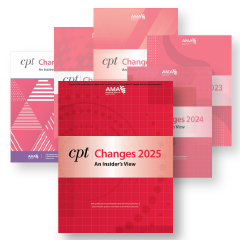by Sara San Pedro, CPC CEMC CPMA
Mar 4th, 2016
NAMAS Weekly Auditing and Compliance Tips
Modifier 24 (Unrelated Evaluation and Management Service by the Same Physician during a Postoperative Period) has generated more scrutiny lately because of the attention it is receiving from Recovery Auditors and payors. An assignment of modifier 24 will oftentimes trigger a medical record request, so we must be confident when appending the modifier that we are using it appropriately.
There are a few important details that need to be known when coding for services during the postoperative period of a surgical procedure and appending modifier 24. First, how many global days were associated with the surgical procedure? For this information, we must turn to the Medicare Fee Schedule Databse (MFSDB). The MFSDB contains information of the postoperative periods that apply to each surgical procedure. Based on the designations in the MFSDB, a surgical procedure may be identified with code "090" indicating a major procedure and "000" or "010", indicating a minor procedure or endoscopy. These codes identify the number of global days assigned to the procedure. There are also designations of "YYY" indicating a carrier-priced code (meaning that most often the carriers determine the number of global days), and "ZZZ" which are used with add-on codes and therefore follow the global day designation for the primary code it is billed with.
Secondly, was the encounter unrelated to the surgical procedure for which we are in a global period? For this information, we must know what is included in a global surgical package and whether the provider documentation indicated this evaluation and management visit's distinctness. As the modifier indicates, the evaluation and management service is "unrelated", so we would expect the provider to be clear in his/her documentation on the nature of the visit.
Modifier 24 is appropriate to use for: surgical complications that require a trip to the operation room, treatment of wound infections, patient admissions to skilled nursing for a condition related to the surgery, dressing changes, postoperative pain management, suture, drain or splint removals, supplies, etc. If is important to note here that simply assigning a different diagnosis code than the one that necessitated the procedure does not mean it is unrelated. An infected postoperative seroma (998.51) may occur after a lumpectomy for breast cancer (174.9). The management of this wound infection does not meet the criteria for an unrelated evaluation and management and therefore, even though there is a different diagnosis code assigned, modifier 24 would not be appropriate.
So, when is modifier 24 appropriate? Modifier 24 is reportable on an evaluation and management service beginning the day after the procedure. The provider must specifically indicate one of the following situations: that the service was either for a problem unrelated to the surgery, exclusively for treatment of an underlying condition and not for post-operative care, management of immunosuppressant therapy if during post-op of a transplant, management of chemotherapy, or for unrelated critical care.
This Week's Auditing & Compliance Tip Provided By:
Sara San Pedro, CPC, CEMC, CPMA
Sara is the Director of Quality Assurance in the Department of Audit and Regulatory Compliance for our parent company, DoctorsManagement, LLC.


 Quick, Current, Complete - www.findacode.com
Quick, Current, Complete - www.findacode.com